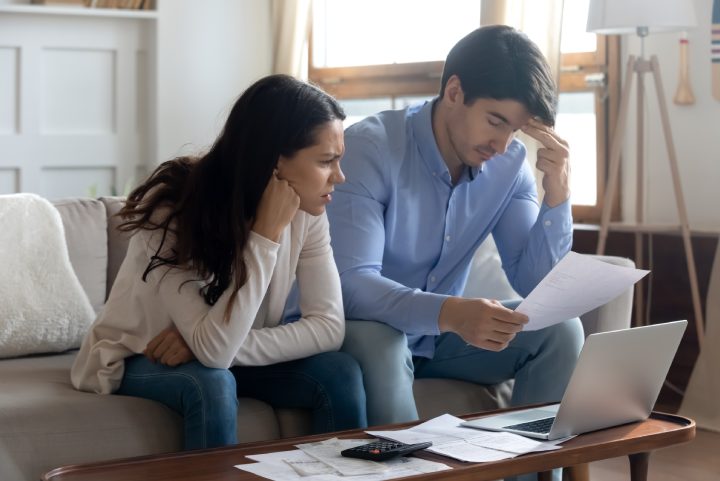How Much Should You Spend on Your Down Payment
Looking to buy a home? Since house prices tend to appreciate over the years, buying a home is definitely a wise idea. Homes are expensive and most people will need a mortgage to buy their dream home. Lenders want buyers to have some equity in their homes before offering them a loan. That means you have to make a down payment. How much money will you need to spend on your down payment?
Earlier, many lenders used to insist on a 20% down payment. Unfortunately, not many people could afford it. Now, many banks have eased their lending norms, and you qualify for a mortgage even if you cannot make a 20% down payment. However, if you have money at your disposal, it still makes sense to pay 20% of the purchase price out of your own pocket.
A large down payment has its merits and demerits. Before you decide how much you want to spend on your down payment, you have to review your financial goals and liabilities. Many people consider the 20 percent down payment ideal. It may not be suitable for everyone, but if you can afford it you will reap many benefits.
Those who make a 20 percent down payment do not have to buy private mortgage insurance. This insurance protects the bank in case you fail to make payments on your mortgage. Those who cannot make the 20 percent down payment can still request their bank to remove the PMI requirement once they reach 20 percent equity in their house. Your equity in your home is the amount of its value owned by you. If you make a 25% down payment and the lender offered the remaining 75%, you have 25% equity in your home while the lender holds 75%.
Your equity in your home will increase as you pay off the mortgage through regular monthly installments. Any appreciation in the value of your home will also increase your equity. Generally speaking, lenders will cancel the PMI when the equity in your home reaches 22% or higher.
Pros of large down payments

Here are the merits of making a large initial payment.
Lower interest rates
When you make a large down payment, you have considerable equity in your home. Consequently, you are not a big risk to your lender. As you have already invested heavily in the home, they have no reason to doubt your commitment to homeownership. An advantage of this is that you will get better interest rates. If you are a high-risk borrower, you will have to pay more interest on your mortgage. Low-risk customers, on the other hand, get to enjoy low-interest rates.
Lower monthly installments
When your down payment is large, you will be borrowing less money. Consequently, your monthly payments too will be low. This makes the mortgage less of a burden for you.
You have an edge over other buyers
If you are buying a resale property and there are several buyers, the seller will prefer the one who is going to make a down payment of at least 20%. If you are able to put down 20% out of your own pocket, it is an indication that you have a healthy financial situation. It also means that you are less likely to face problems when you apply for a mortgage. That means a higher down payment increases your chances of winning the property in a hot market.
Cons of a large down payment

Not every buyer, however, can put down 20% of the home price. Many people simply cannot afford it. Some buyers may want to reserve some cash for other expenses or future repairs. So, if you are in a tight financial situation, it probably doesn’t make sense for you to put down 20%.
If you are buying a resale home, it might require some repairs. The large down payment will reduce the amount of money you can spend on such expenses.
If you intend to make a large down payment, you may have to save money for months or even years. This can make homeownership an unrealistic dream for many people. Also, waiting until you have saved enough for a 20% down payment can actually cost you a lot of money. This is especially true for people who are living in a rented property. Each month, they have to shell out a huge amount for paying the rent. So, buying a home now with whatever little money you have is actually a better option than waiting until you have saved enough.
What if you can’t pay any down payment at all?

It is possible to buy a home with zero down payment. However, you can’t get a conventional loan for this purpose. You will have to opt for a loan backed by the government. These are loans insured by the government. They carry less risk to the lender because the government is going to compensate for their loss if they fail to pay off the mortgage. Consequently, lenders may offer lower interest rates on such loans. They may also waive the down payment requirement.
Right now, those who are eligible for a USDA or VA loan can buy a property with zero down payment. Former and current members of the Armed Forces are eligible for the VA loan. In some cases, surviving spouses of the Armed Forces may also be eligible. USDA loans are available for buyers in some rural and suburban areas.
USDA and VA loans do not require the buyer to make a down payment. However, in order to qualify for these loans, you have to meet certain eligibility criteria instituted by the Department of Veteran Affairs and USDA.
How much down payment for a house
Down payment requirements vary according to the kind of loan you get. Sometimes, the down payment requirement for a primary residence may be different from that of an investment property.
If you are getting a conventional loan to buy your primary residence, it is up to the lender to determine the down payment requirements. Some may ask you to make a down payment of 5% of the purchase value. Others may require just 3%. If your credit score is 620 points or above, you may have access to loans with lower down payments.
FHA loans require a down payment of 3.5% for those who have a credit score of 580 or above. If your credit score is in the 500 to 579 points range, you may have to make a down payment of at least 10%.
VA loans do not require a down payment. However, there are certain requirements regarding the length of military service. Your discharge reason may also be considered while determining your eligibility. The spouse of a veteran may also be eligible for a VA loan with zero down payment.
Just like VA loans, a USDA loan also does not require a down payment. However, these loans are only available to people who purchase homes in a certain approved suburban or rural area. In addition, there are certain income requirements for the buyer and other members of their household.
If you are getting the loan to buy your secondary or vacation home, most conventional lenders will require you to make a down payment of at least 10% of the home value. An FHA loan cannot be used to purchase a second home. A VA loan or a USDA loan cannot be used either.

